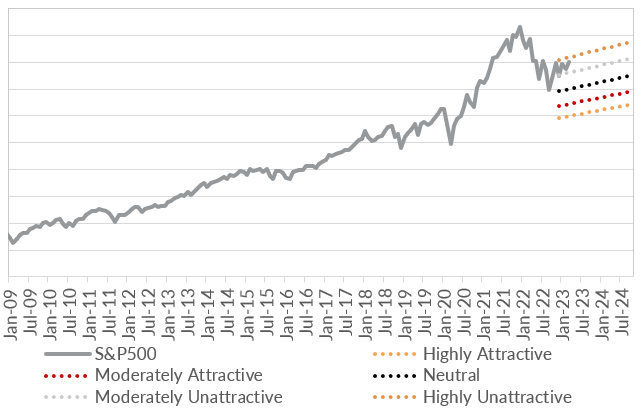What to do when the Fed makes a mistake
Central banks make mistakes and those mistakes lead to recession. The timing is not easy to predict. But when the yield curve begins to normalise from inversion and the manufacturing PMI sinks to 45, the conditions are there. Right now, we are close to entering recession. It may be shallow. But the economy is not the market, and that is something worth remembering as we move through 2023. Even if we have a shallow recession, markets will extrapolate and overshoot, and portfolios will feel pain.
In this wire, I'll go through some of the key signals to watch and explain how we are tackling this problem on behalf of clients.
The key signals are looking ominous
The US yield curve – the difference between the 10-year and the 2-year Treasury yield – is deeply inverted. But it has started to normalise, steepening from -1.09% in early-March to -0.53% now. A move through zero to a positive yield curve will indicate we are in recession.
Chart 1: The yield curve has normalised rapidly
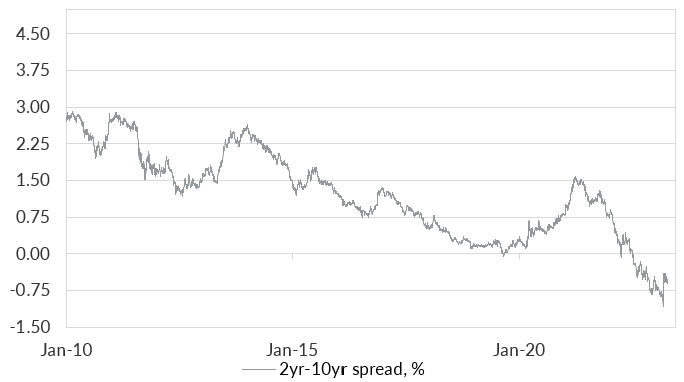
The manufacturing PMI has historically been a good indicator for both economic and earnings recessions. The key level is 45, not 50. The manufacturing PMI slipped to 46.3 in March. We are a whisker away from recession. And that is pointing to some significant downside in earnings for US corporates.
Chart 2: The manufacturing PMI is flashing red for recession
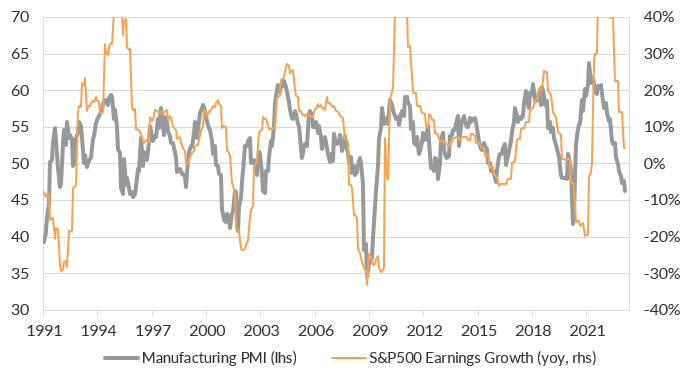
Inflation is going to collapse
Inflation is sticky but not in a recession. The experience from 2008-09 drives home how quickly elevated inflation can decline during economic contraction. The Fed already has monetary policy at restrictive levels and credit conditions are going to tighten sharply in the wake of the banking collapses and deposit flight to money market funds.
Chart 3: Inflation is sticky except during recession
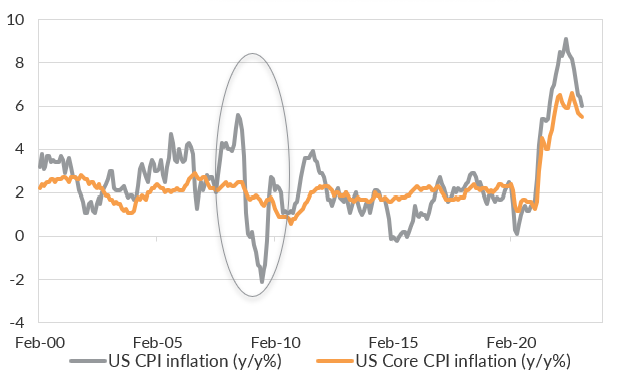
In our view, the Fed’s hike in March was probably a mistake. The Fed looks almost certain to compound that mistake by hiking in May. That could be the final straw for this US economic expansion. The rates market certainly thinks so. I think the current pricing for several rate cuts by the end of the year reflects around a 50% pricing for a deep recession.
Chart 4: Markets are pricing an elevated risk of recession
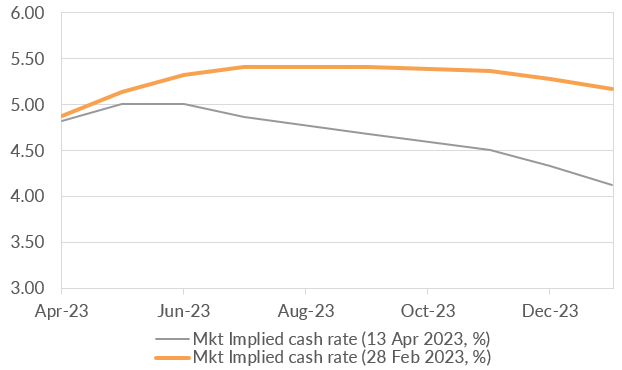
Market pricing is not compensating for this downside risk
The economic downturn may be short and it may be shallow. But markets tend to overshoot when it does happen. Currently, US Treasury markets are closest to pricing in the shape of things to come. But even there, the 2-year and 10-year Treasury yield has further to decline. It would not be unreasonable to see a 2-year yield closer to 2.00% than 4.00% by year-end. Shorter-dated Treasuries remain one of my most preferred overweight allocations as a result.
On the other hand, equities and high yield credit are among my least preferred. Neither are adequately compensating investors for the considerable downside risk. Credit downgrades have begun to increase.
Chart 5: The credit downgrade cycle has begun
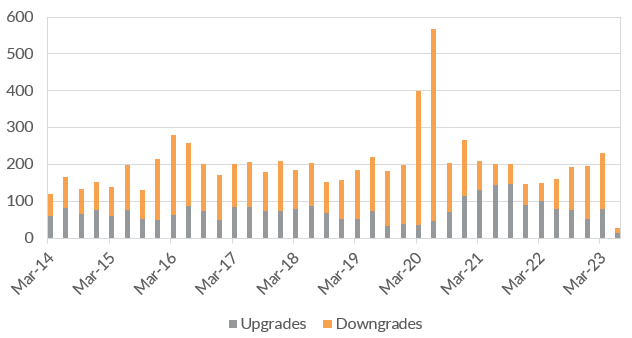
Credit spreads have not widened enough in response to that additional risk. A spread closer to 8% is plausible this year.
Chart 6: Credit spreads have widened, but still do not compensate for downside risk
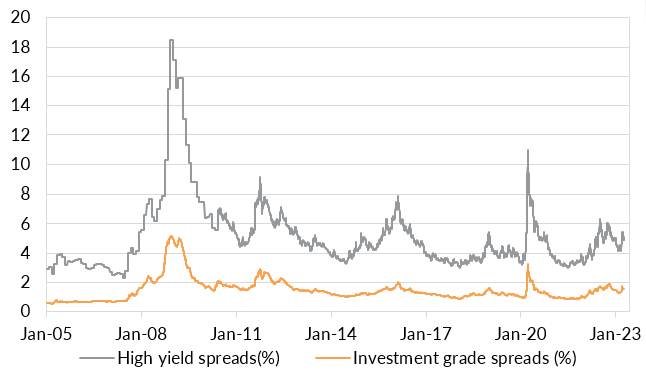
Equities have remained resilient to the slowing economic data and evidence of earnings challenges. I estimate fair value to be well below current levels given the outlook.
The chart below shows equities are currently in moderately unattractive levels. If a recession hits, it is likely prices will correct to moderately attractive levels. That could be some 20% from current pricing.
Chart 7: US equities are moderately unattractive at current levels
Prepare for the worst
The Fed could manage a soft landing. The economic cycle could extend beyond 2023 into 2024. It is critical to remain invested and to manage diversification to have some exposure to that better alternative. But history is against the Fed as a credit crunch looms in the US economy. This may be only a short recession but even so, markets will overshoot to the downside.
Equities and high yield credit will struggle in that environment. Higher quality credit and government bonds will provide some protection. The time to prepare for the Fed’s next error is now.
3 topics

